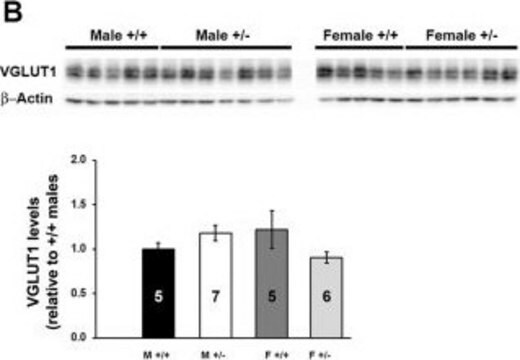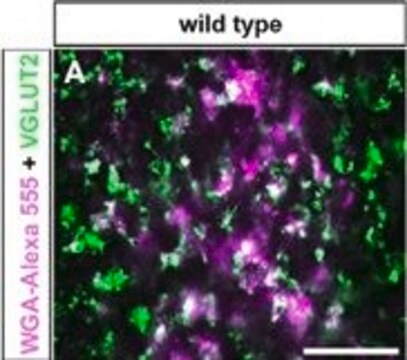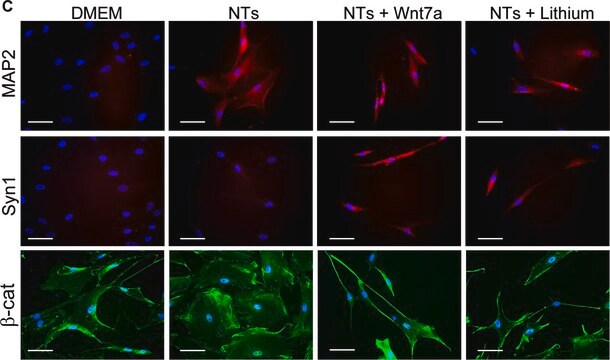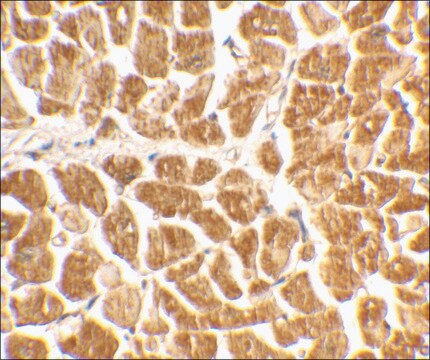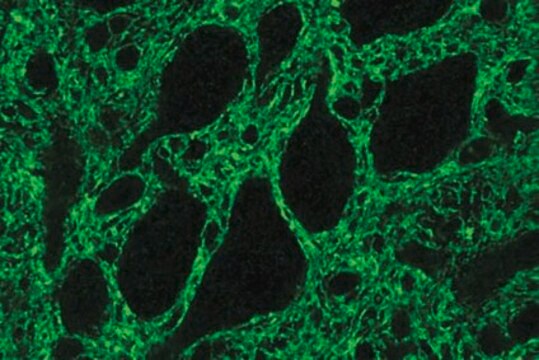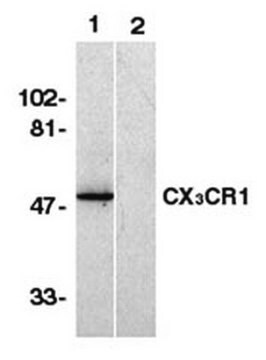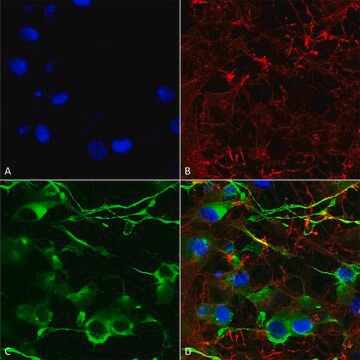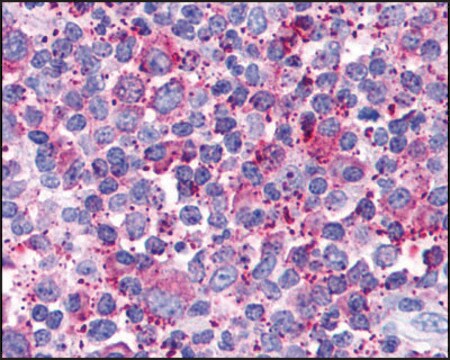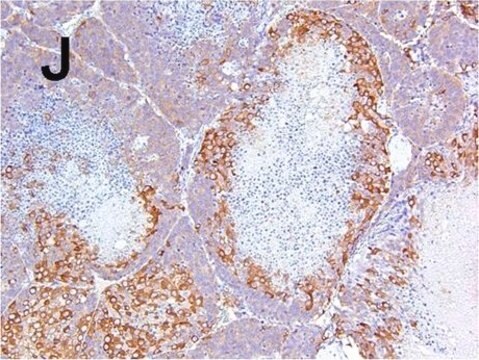AB5905
Anti-Vesicular Glutamate Transporter 1 Antibody
CHEMICON®, guinea pig polyclonal
Synonym(s):
VGLUT1, BNPI
About This Item
Recommended Products
product name
Anti-Vesicular Glutamate Transporter 1 Antibody, serum, Chemicon®
biological source
guinea pig
Quality Level
antibody form
serum
antibody product type
primary antibodies
clone
polyclonal
species reactivity
rat
manufacturer/tradename
Chemicon®
technique(s)
immunohistochemistry: suitable
NCBI accession no.
UniProt accession no.
shipped in
dry ice
target post-translational modification
unmodified
Gene Information
rat ... Slc17A7(116638)
General description
Specificity
Immunogen
Application
- Tested Applications
Immunocytochemistry Analysis: A 1:250 dilution from a representative lot detected Vesicular Glutamate Transporter 1 in rat E18 cortical cells. - Note: Actual optimal working dilutions must be determined by end user as specimens, and experimental conditions may vary with the end user
Target description
Physical form
Legal Information
Not finding the right product?
Try our Product Selector Tool.
Storage Class Code
10 - Combustible liquids
WGK
WGK 1
Certificates of Analysis (COA)
Search for Certificates of Analysis (COA) by entering the products Lot/Batch Number. Lot and Batch Numbers can be found on a product’s label following the words ‘Lot’ or ‘Batch’.
Already Own This Product?
Find documentation for the products that you have recently purchased in the Document Library.
Customers Also Viewed
Our team of scientists has experience in all areas of research including Life Science, Material Science, Chemical Synthesis, Chromatography, Analytical and many others.
Contact Technical Service